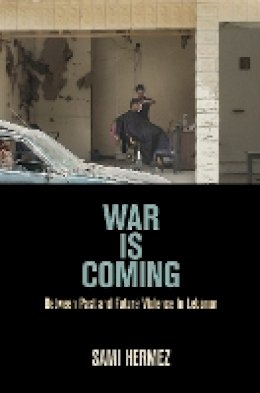
Stock image for illustration purposes only - book cover, edition or condition may vary.
War Is Coming: Between Past and Future Violence in Lebanon (The Ethnography of Political Violence)
Sami Hermez
€ 112.49
FREE Delivery in Ireland
Description for War Is Coming: Between Past and Future Violence in Lebanon (The Ethnography of Political Violence)
Hardcover. War Is Coming is an ethnographic study that sheds light on the everyday conversations, practices, and experiences of people in Lebanon who live in between moments of political violence, remember past wars, and anticipate future turmoil. Series: The Ethnography of Political Violence Series. Num Pages: 280 pages, 20 illus. BIC Classification: 1FBL; 3JJ; 3JM; HBJF1; HBLW; HBLX. Category: (U) Tertiary Education (US: College). Dimension: 163 x 239 x 29. Weight in Grams: 598.
Read more
From 1975 to 1990, Lebanon experienced a long war involving various national and international actors. The peace agreement that followed and officially propelled the country into a "postwar" era did not address many of the root causes of war, nor did it hold main actors accountable. Instead, a politics of "no victor, no vanquished" was promoted, in which the political...
Product Details
Format
Hardback
Publication date
2017
Publisher
University of Pennsylvania Press
Condition
New
Series
The Ethnography of Political Violence Series
Number of Pages
280
Place of Publication
Pennsylvania, United States
ISBN
9780812248869
SKU
V9780812248869
Shipping Time
Usually ships in 15 to 20 working days
Ref
99-15
About Sami Hermez
Sami Hermez is Associate Professor in Residence of Anthropology and director of the Liberal Arts Program at Northwestern University in Qatar.
Reviews for War Is Coming: Between Past and Future Violence in Lebanon (The Ethnography of Political Violence)
"War is Coming is an ambitious ethnographic examination of Lebanon's long history of instability . . . [O]ne of the strongest virtues of War is Coming:[is] in its ethnographic detail and its determination to not impose closure, it embodies the Lebanese experience, and so humanizes people and processes so often dehumanized and caricatured within social scientific literatures on civil wars...
Read more